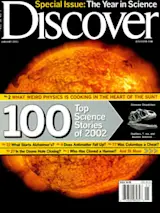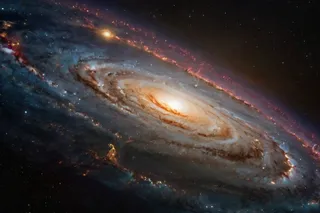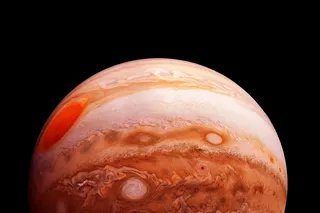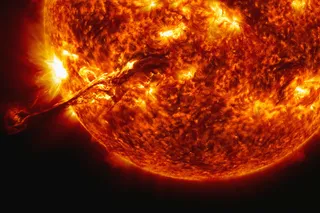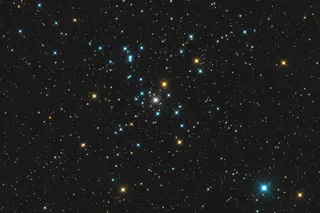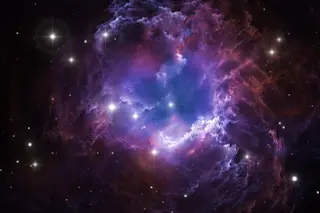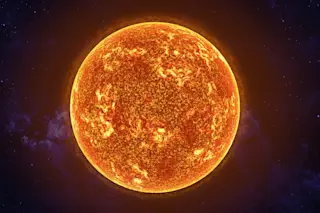14. Invisible Galaxies Found
When an astronomer discovers a new comet, it's named after him, so perhaps we should name 90 percent of the universe in honor of Neal Dalal of the University of California at San Diego and Christopher Kochanek of the Smithsonian Astrophysical Observatory in Cambridge, Massachusetts. The two have reported the most direct evidence yet for the invisible mass that has gone missing from cosmological surveys.
Scientists have concluded that the vast bulk of the universe consists of exotic dark matter, a substance that emits no light. Dark matter cannot be observed, obviously, but it should generate a gravitational tug that shapes the behavior of collections of galaxies. Under its influence, moderate-size galaxies such as our own should be surrounded by swarms of smaller galaxies. "The region around the Milky Way should look like the Coma cluster," Kochanek says, referring to a famous, dense grouping of galaxies. ...


